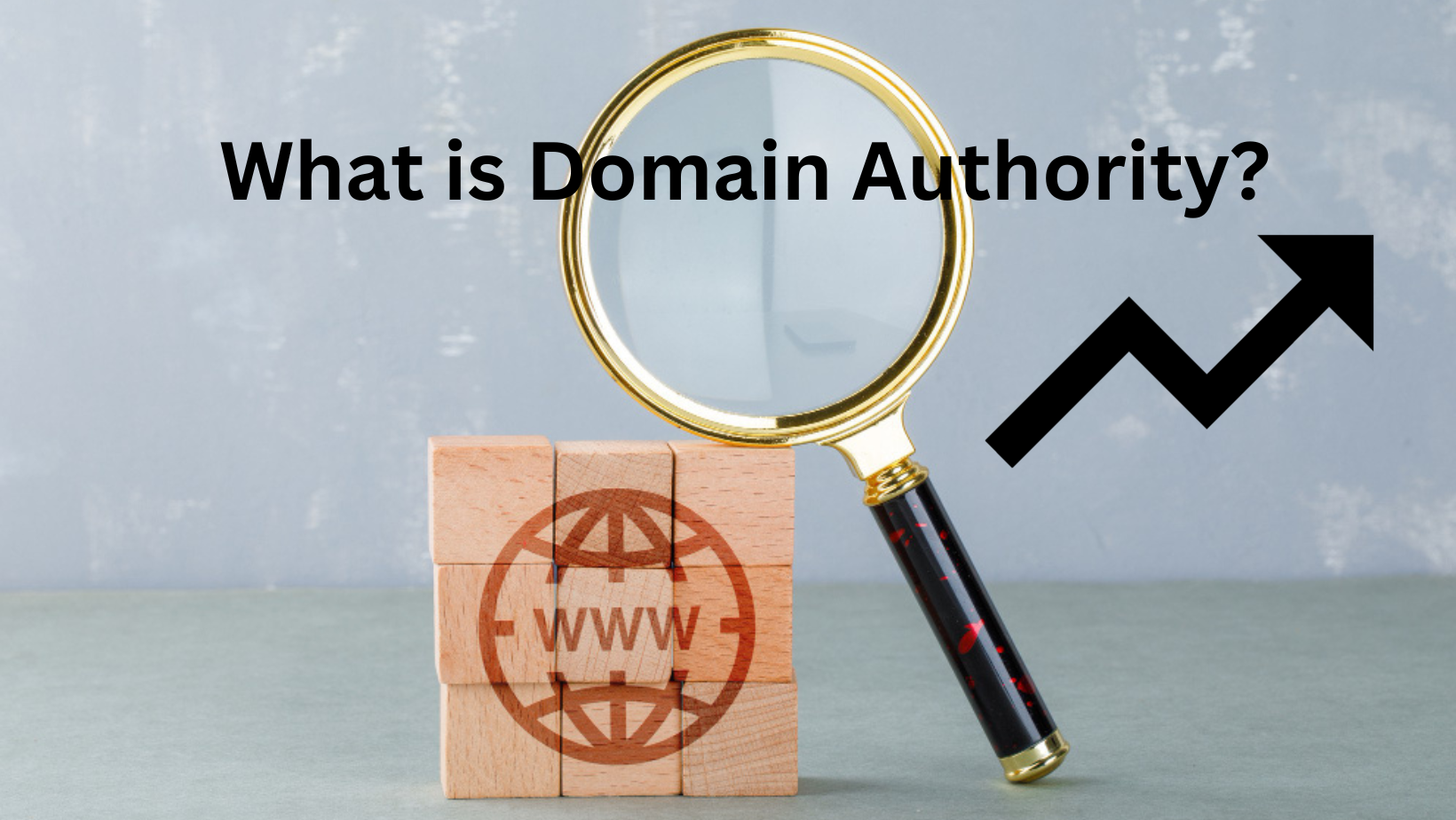What is Domain Authority and why is it important?
Domain Authority is a metric developed by Moz that predicts how well a website might rank on search engine result pages (SERPs). Think of it as a grade or a scale from 1 to 100 that gives you a peek into a website’s potential to rank higher in search engines.
Here’s the deal: The higher the Domain Authority score, the better the chances of a website ranking well. It takes into account various factors like the number of quality backlinks, the site’s overall quality, and its trustworthiness.
Understanding Domain Authority is like having a compass in the SEO landscape – it helps website owners gauge their site’s strength compared to competitors and work towards boosting their rankings. So, it’s a pretty handy metric when it comes to optimizing websites for better visibility and performance in search results!
Defining Domain Authority
Before delving into the reasons why Domain Authority is essential, let’s start by defining this term. Domain Authority, often abbreviated as DA, is a website metric developed by Moz, a renowned authority in the field of SEO (Search Engine Optimization). This metric serves as a numeric representation of a website’s potential to rank on Search Engine Result Pages (SERPs).
DA is measured on a scale ranging from 1 to 100, with 100 signifying the highest possible score. The logic is simple: the higher a website’s DA, the more likely it is to secure top rankings on search engines. For instance, giants like Google and Facebook boast a DA score of 100, showcasing their strong presence and authority on the web.
Factors Affecting Domain Authority
On-Site Factors:
1. Content Quality:
– Relevance and Quality: High-quality, valuable, and original content that addresses user intent tends to attract more engagement and backlinks, positively impacting DA. Content should align with search queries and provide valuable information.
– Depth and Engagement: Longer, comprehensive content tends to attract more attention and links. Engaging content that satisfies user queries or interests encourages users to spend more time on the site, potentially increasing backlinks and indirectly influencing DA.
2. Site Structure and User Experience (UX):
– Accessibility: A well-organized and easy-to-navigate site structure improves UX. Seamless navigation helps users find information quickly and encourages longer sessions, indirectly boosting backlinks and authority.
– Mobile Optimization: Websites optimized for mobile devices provide a better user experience, considering the increasing mobile traffic. Mobile-friendly sites often rank higher in search results, indirectly influencing DA.
3. Technical SEO:
– Page Load Speed: Faster-loading pages enhance user experience, positively affecting bounce rates and time spent on the site. Improved load times indirectly contribute to a better user experience, potentially impacting backlinks and authority.
– Optimized Metadata: Well-optimized titles, meta descriptions, and heading tags contribute to better search visibility. Properly crafted metadata can attract more clicks and potentially increase traffic, indirectly affecting DA.
Off-Site Factors:
1. Backlink Profile:
– Quality Backlinks: Backlinks from authoritative and relevant websites are crucial for improving DA. High-quality backlinks indicate trust and authority, significantly impacting a site’s credibility.
– Link Diversity: A diverse backlink profile from various domains signals credibility to search engines. Natural link diversity, including links from different sources and domains, contributes positively to DA.
2. Social Signals:
– Social Engagement: While not directly impacting DA, strong social signals such as shares, likes, and comments can indirectly increase a website’s visibility and potentially attract more backlinks, thus influencing DA.
3. Brand Signals:
– Brand Mentions: Online brand mentions or references across the web can indirectly signal authority and credibility to search engines, potentially impacting DA.
Focusing on these elements collectively contributes to a holistic approach in enhancing Domain Authority. Websites aiming to improve DA should prioritize high-quality content creation, technical optimization, user-centric experiences, a strong backlink profile, and positive brand signals across the web. Consistent efforts in these areas over time can lead to an increase in Domain Authority.
How to check domain authority of your site?
Checking the Domain Authority (DA) of your website is pretty straightforward. Several online domain authority checker tools provide insights into a site’s DA. Here’s how you can check it:
Using Online Tools:
1. Moz’s Link Explorer:
-Go to Moz’s Link Explorer (formerly Open Site Explorer).
-Enter your website’s URL in the search bar.
-The tool will display your site’s DA score along with additional metrics related to backlinks and domain authority.
2. Ahrefs’ Site Explorer:
– Visit Ahrefs’ Site Explorer.
– Enter your website’s URL.
– The tool will provide various metrics, including Domain Rating (similar to DA), backlink profile, and other site-related data.
3. SEMrush:
– Access SEMrush’s Site Audit tool or Backlink Analytics.
– Enter your website’s URL to view metrics related to authority, backlinks, and more.
4. Majestic SEO:
– Visit Majestic SEO’s Site Explorer.
– Enter your site’s URL to check its Trust Flow, Citation Flow, and overall authority metrics.
5. SmallSEOTools:
– Utilize free online tools like SmallSEOTools’ DA Checker.
– Enter your website’s URL to get an instant Domain Authority score.
These tools offer varying degrees of insights into a website’s Domain Authority and other related metrics. They help website owners and marketers understand their site’s authority standing and guide strategies for improvement. It’s advisable to use multiple tools for a comprehensive analysis and track changes in DA over time.
The Algorithmic Complexity
Moz’s algorithms for calculating Domain Authority are complex and constantly evolving. Although the exact algorithm remains a closely guarded secret, we know that several factors come into play when determining a website’s DA. Gaining insight into these factors is essential for website owners and digital marketers aiming to enhance their DA scores.
The Power of Backlinks
One of the most influential factors contributing to a website’s DA is its backlink profile. Backlinks are links from other websites that lead to yours. The number and quality of these backlinks significantly affect your DA score. High-quality and authoritative backlinks carry more weight in the eyes of Moz’s algorithms.
Content Quality is King
The quality of a website’s content is another critical component influencing DA. High-quality content is typically characterized by its relevance, uniqueness, and its capacity to provide valuable information to readers. Websites that consistently publish informative, engaging, and original content are more likely to achieve higher DA scores.
The Role of On-Page SEO
Effective on-page SEO (Search Engine Optimization) practices are fundamental to improving DA. This includes optimizing various elements on your website, such as meta tags, headers, and proper keyword usage. Websites that meticulously attend to these on-page details have an edge when it comes to enhancing their DA.
User Experience Matters
User experience (UX) is becoming increasingly vital in Moz’s DA algorithm. Websites that offer a positive UX, characterized by fast loading times, mobile-friendliness, and easy navigation, tend to receive higher DA scores.
Social Signals and Their Influence
While not as influential as backlinks, social signals can contribute to a website’s DA. A strong presence on social media platforms can indirectly influence DA by driving traffic, encouraging backlinks, and enhancing overall online visibility.
Why Domain Authority Matters
Having explored what Domain Authority is and how it’s calculated, let’s delve into why it matters:
Impact on Search Engine Rankings
One of the most prominent reasons why Domain Authority is essential is its direct impact on search engine rankings. Websites with higher DAs have a greater likelihood of appearing on the first page of search results. This results in attracting a more substantial share of organic traffic, which is highly valuable for any website.
Competitive Analysis and Strategy
DA isn’t just an internal metric for your website; it’s a valuable tool for competitive analysis. By comparing your website’s DA to that of your competitors, you can identify opportunities for growth and optimization.
Attracting Quality Backlinks
Websites with higher DAs are more attractive to other site owners who are looking to build backlinks. A high DA can lead to more opportunities for quality backlinks, which can further enhance your website’s DA and overall search engine ranking.
Trust and Credibility
High Domain Authority implies trust and credibility to both users and search engines. When your website ranks well, it is more likely to be trusted by visitors, leading to increased conversions and brand authority.
Shaping an Effective SEO Strategy
Understanding your website’s DA is critical for shaping your SEO strategy. By setting a specific DA score as a goal, you can tailor your SEO efforts to achieve it, thereby continually improving your website’s performance.
Content Optimization
Websites aiming for a higher DA must focus on creating high-quality, relevant content. This not only benefits users by offering valuable information but also plays a crucial role in improving search engine rankings.
Long-Term Growth and Success
Investing in the improvement of your DA sets the stage for long-term growth. As your website’s authority grows, it becomes more capable of attracting and retaining a larger audience, ensuring long-lasting online success.
Tools to Measure Domain Authority
Now that we’ve established the significance of Domain Authority, you might be wondering how to measure it. Luckily, several online tools are available to help you track your DA and those of your competitors. These tools offer insights into your website’s health, backlink profiles, and suggestions for improvement. Here are some widely-used options:
Moz’s Link Explorer
Moz offers a free online tool known as Link Explorer that provides you with essential data about your website’s backlink profile and Domain Authority. You can also gain insights into your top-performing pages and the domains linking to your content.
Ahrefs
Ahrefs is a comprehensive SEO toolset that includes a domain rating (DR) metric, which is similar to Domain Authority. Ahrefs provides an in-depth analysis of backlinks, organic traffic, and keyword rankings.
SEMrush
SEMrush is another robust SEO tool that offers an authority score, which is its version of Domain Authority. This tool provides a range of SEO metrics, including traffic analytics, site auditing, and competitor analysis.
Google Search Console
Google Search Console is a free tool provided by Google that offers valuable insights into your website’s performance on Google’s search engine. While it doesn’t provide a direct DA score, it’s an essential resource for optimizing your website’s presence on Google.
Strategies for Boosting Domain Authority
Increasing your Domain Authority requires dedication and a well-planned strategy. Here are some effective strategies to help you improve your DA over time:
Quality Backlinks
Focus on building high-quality, relevant backlinks from authoritative websites in your niche. Quality should always take precedence over quantity. This can be achieved through guest posting, outreach, and creating shareable, link-worthy content.
Content Optimization
Create content that not only addresses the needs and interests of your target audience but also stands out as high-quality and unique. Content that provides solutions, answers questions, and engages readers is more likely to attract natural backlinks.
On-Page SEO
Optimize your website’s on-page SEO elements, such as meta tags, headers, and keyword usage. Ensure your website’s structure and internal linking are user-friendly.
User Experience Enhancement
Enhance your website’s user experience by focusing on factors like page load speed, mobile responsiveness, and easy navigation. A website that offers a smooth and enjoyable experience is more likely to retain visitors and attract natural backlinks.
Social Media Engagement
Actively engage with your audience on social media platforms. Encourage sharing and discussion of your content, which can lead to increased online visibility and improved DA.
Regular Monitoring
Regularly monitor your website’s performance and backlink profile. Identifying and rectifying any issues promptly can prevent negative impacts on your DA.
Wrap Up
In the ever-competitive landscape of the internet, Domain Authority plays a pivotal role in determining your website’s visibility and success. As a website owner, content creator, or digital marketer, understanding the importance of Domain Authority can be a game-changer. It’s a tool that empowers you to make informed decisions about your website’s health, optimize your content, and drive more organic traffic.
By focusing on improving your website’s backlink profile, content quality, on-page SEO, user experience, and social media engagement, you can work towards increasing your Domain Authority. As your DA grows, so does your website’s potential for attracting a broader audience, enhancing your credibility, and ensuring long-term online success.
Embrace the concept of Domain Authority as a compass that guides your digital journey. It’s not just a metric; it’s a pathway to a more influential and impactful online presence. So, whether you’re an established business, a startup, or a passionate blogger, understanding and harnessing the power of Domain Authority is your ticket to a brighter future in the digital realm.
FAQs
What is a good Domain Authority score?
Answer: A good Domain Authority score typically ranges between 40 to 50. Higher scores, such as 60 or above, are considered excellent, showcasing stronger authority and potential for better search rankings.
How often does Domain Authority change?
Answer: Domain Authority scores are not fixed and can fluctuate over time. Changes may occur due to factors like algorithm updates, new links, or modifications in the site’s SEO.
Can a low Domain Authority affect search rankings?
Answer: While a lower DA isn’t the sole factor for lower rankings, it can impact visibility. Websites with higher DA often rank better, but content relevance and user experience also play significant roles in search rankings.







